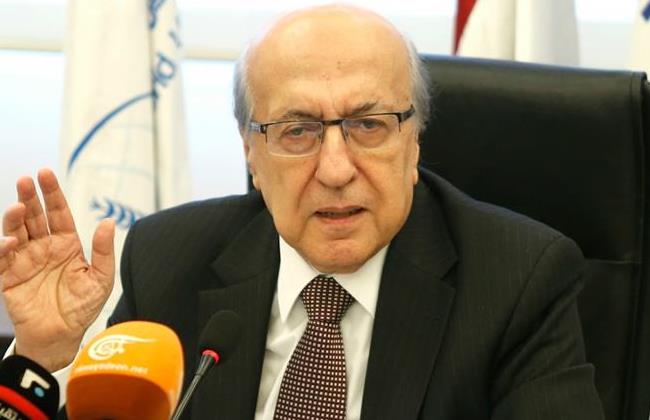Lebanese banks abiding by all international laws: Torbey
Osama Habib/The Daily Star
Dec. 24, 2014
BEIRUT: Lebanese banks face no threat of any international penalties after the local lenders successfully complied with all anti-money laundering and other similar legislation, the chairman of the World Union of Arab Bankers said Tuesday.
“We overcame this issue [compliance] a long time ago. We have built a wide confidence network with the European Union and the United States because the Lebanese banking sector managed to meet all the challenges,” Joseph Torbey told a news conference Tuesday at the headquarters of the Union of Arab Banks.
Torbey was responding to a question about the Correspondent Banks conference which was held in New York a few months ago.
The conference, which was attended by representatives of American and Arab banks, discussed the difficulties encountered by some Arab lenders in terms of correspondent banking.
The United States has tightened its supervision of correspondent banking with Arab banks in particular in a bid to crack down on the transfer of terrorist financing.
“This sector is a strategic sector and everyone has an interest in protecting it. Lebanese banks know how to deal with international resolutions and decisions,” Torbey explained.
He also predicted relatively good growth for Lebanese banks in 2015 despite the political and security problems plaguing the country.
Torbey added that Lebanese lenders would continue to finance the public debt in 2015 despite Moody’s downgrade of three major banks. “I didn’t panic when Moody’s rating agency downgraded the Lebanese banks and sovereign bonds of Lebanon. With all due respect to Moody’s, the other leading rating agencies such as Standard & Poor’s maintained the stable outlook [rating] of the banks,” Torbey said.
Last week, Moody’s downgraded the long-term deposit ratings of Bank Audi, BLOM Bank and Byblos Bank to “B2” from “B1,” one day after the ratings agency also downgraded Lebanon’s government bond ratings to “B2” from “B1.”
Torbey added that the Lebanese government would have no problem rolling over the maturing treasury bills and eurobonds in 2015.
“Lebanon will be able to meet the outstanding bonds in 2015. There won’t be any problem in replacing the old bonds with new ones. The liquidity of the local lenders can meet all the needs of the state,” he stressed.
Lebanese banks hold a big chunk of the sovereign debts of the state and have been able finance the public debt for more than two decades.
Torbey added that growth in deposits was the best indication that there was no financial crisis on the horizon for Lebanon.
“We had a 7-percent growth in deposits so far this year and this trend is expected to continue,” he said.
The consolidated balance sheets of the Lebanese banks at the end of September exceeded $180 billon, four times Lebanon’s GDP.
He noted that there were a lot of negative indications over the past years and yet the country was able to hold its ground.
Torbey believes that the international community has a keen interest in preserving political, financial and monetary stability in Lebanon.
“This is the first time we notice strong international solidarity with Lebanon. This is a good indication that there won’t be any negative financial incidents in 2015.”
Torbey also commented on the Lebanese banks which operate in countries that have been the scenes of uprisings and civil war.
“The Central Bank of Lebanon has asked all local banks operating in volatile countries to increase their provisions for non-performing loans. The Central Bank took this decision to protect the local players,” he added.
Lebanese lenders in war-torn Syria saw their assets and deposits dwindle sharply although they were able to make profits from unrealized foreign exchange gains on structural positions.
“The assets of the Lebanese banks in these banks in these countries are very small compared to those in Lebanon,” Torbey said.
He argued that the decline in oil prices may not necessarily have a negative impact on Lebanon.
“One of first positive effects of the fall in oil prices is that the deficit of Electricite du Liban will fall by $500 million,” Torbey said.
Most of the state-owned electricity provider’s losses are due to the high cost of fuel oil, which the country’s power plants run on.
He added that it was too early to say whether the remittances of Lebanese expatriates in oil producing countries would drop in view of the decline in oil prices.























